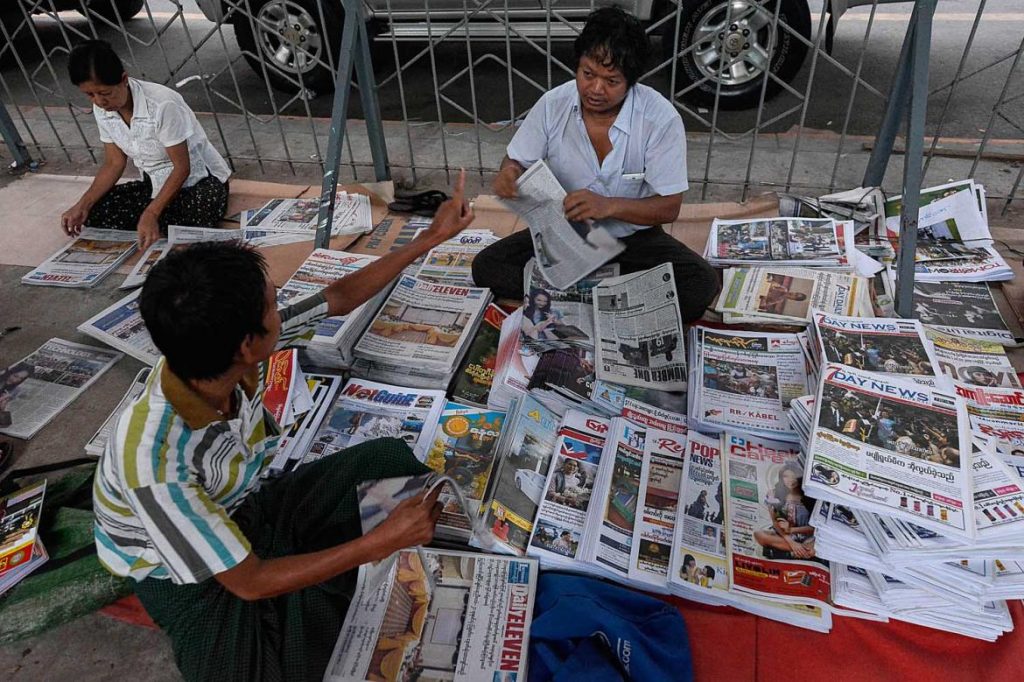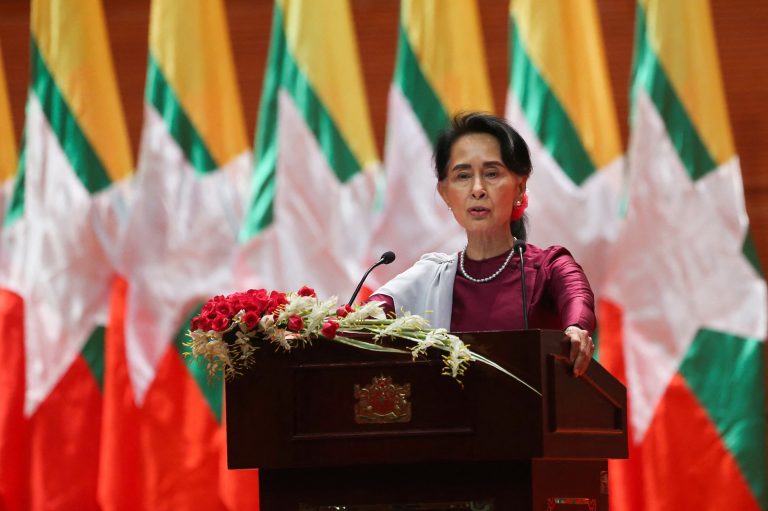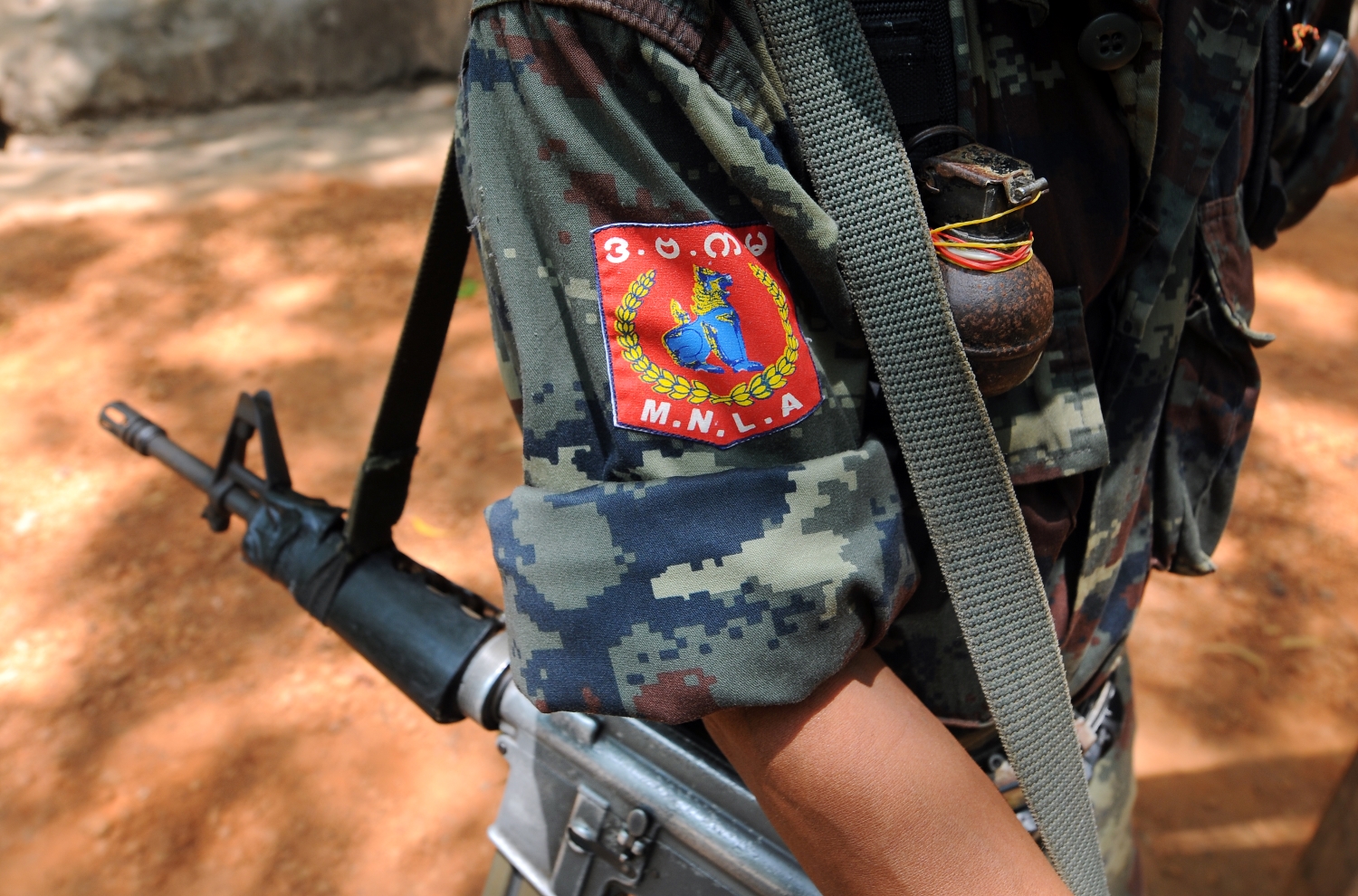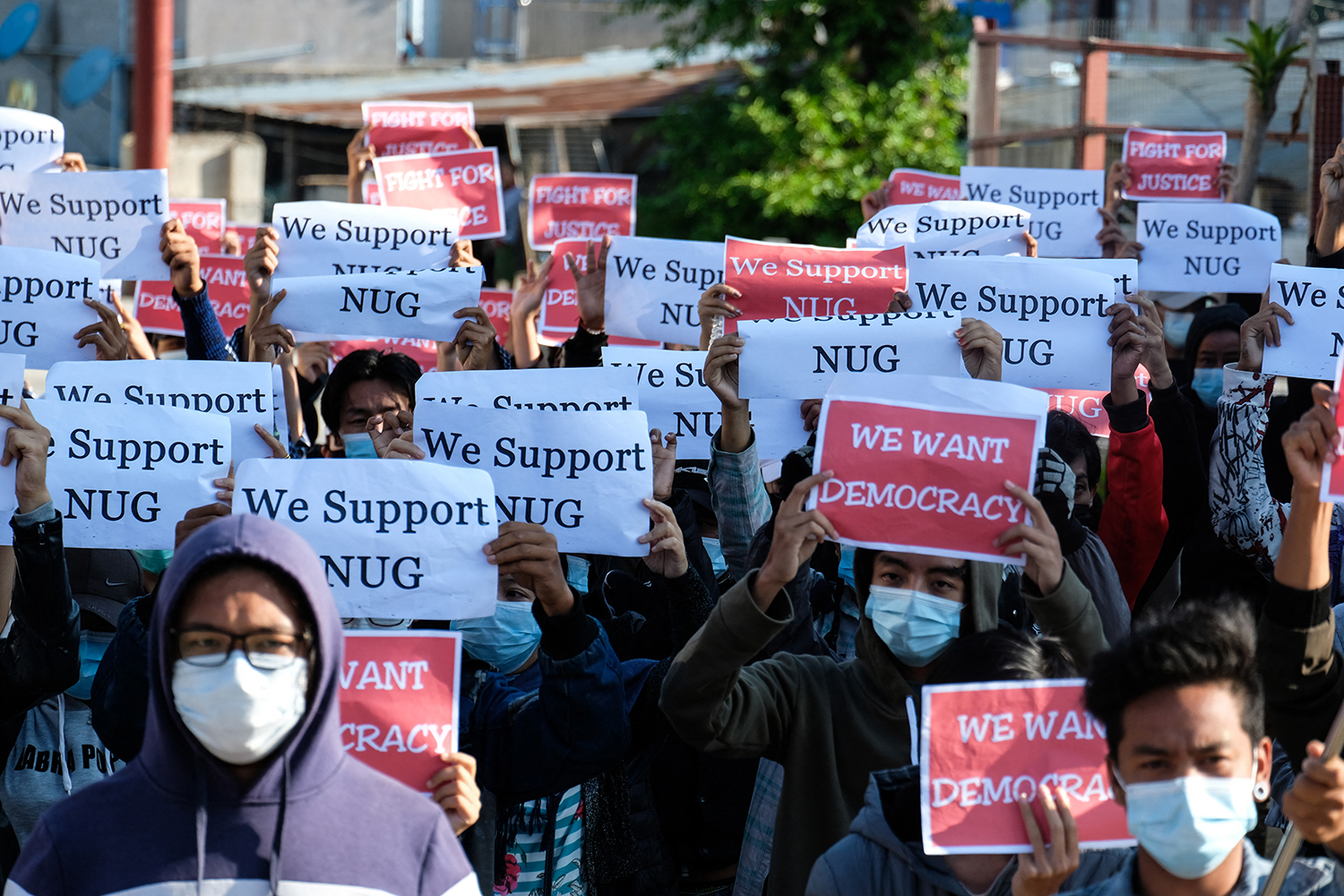A review of the NLD-led government’s performance on its first anniversary reveals a disappointing failure to honour election campaign promises for greater transparency.
By DEBBY CHAN | FRONTIER
DURING THE election campaign that swept it to a landslide victory in November 2015, the National League for Democracy promised “change” to its constituents.
It is taking time for the NLD-government to achieve tangible changes. This is because it inherited a weak economy, poor infrastructure, an inefficient bureaucracy, protracted armed conflicts and other deep-seated structural problems from previous governments.
It was commendable that the NLD-led government endeavoured to further the peace process from the onset. The government is also heading in the direction of economic justice by increasing the budget for education and health. In spite of these efforts, there are areas in which the government performed less well. Among them, I highlight the issue of transparency. This problem is largely rooted in a lack of commitment rather than any other limitations.
The need for greater transparency is among the issues the NLD advocated during the election campaign. Disappointingly, the track record of the government since it took office just over a year ago has shown that it wrongly defined – and perhaps even intentionally ignored – transparency.
Support more independent journalism like this. Sign up to be a Frontier member.
The government’s practices show that it understands transparency as trust that the top leaders are in the best position to work for the country. This is consistent with what NLD leader Daw Aung San Suu Kyi told voters on the campaign trail: “Vote for the party, not individuals. If the candidates are not good, I will lecture them.”
As the NLD controls both the executive and the legislature, the government is in a favourable position to promote effective governance. On the down side, the NLD-dominated parliament is weak in performing its check and balance role. Against this background, public scrutiny is of foremost importance in holding the government accountable to citizens.
According to the United Nations Human Rights Committee, which oversees the International Covenant on Civil and Political Rights (a treaty to which Myanmar is not yet a state party), the general public is entitled to the right of access to information held by public bodies. The media plays the role of a catalyst in providing information to the public.
In July 2011, the HRC adopted General Comment No. 34 that interprets the provisions concerning freedoms of opinion and expression in the ICCPR. It states that “the right of access to information includes a right whereby the media has access to information on public affairs and the right of the general public to receive media output”. In its first year in power, how did the NLD-led government perform in regard to transparency? This is my assessment:
Myanmar’s top leaders rarely hold press conferences to share information. President U Htin Kyaw has never held a press conference, probably because of his ceremonial role in the government. State Counsellor Daw Aung San Suu Kyi seldom holds press conferences in Myanmar, though she has made comments at joint press conferences with visiting dignitaries.
Veteran journalists have expressed regret that many government officials were not approachable. The government has released information that it wanted the media to report but it does not welcome questions from journalists. A lack of transparency jeopardises journalism in Myanmar and is a denial of the citizens’ right to know.
It is not only the media that encounters challenges in seeking information. MPs have faced difficulties when they tried to raise issues deemed contentious by the ruling party. It may be understandable that the NLD-led government has coordinated with NLD MPs to censor questions lest they cause embarrassment. Parliamentary speakers have even restricted debates initiated by opposition party members on sensitive issues.
In May 2016, Pyithu Hluttaw MP Daw Nan Moe, who represents Mantong Township in Shan State for the Ta’ang (Palaung) National Party, submitted a proposal on the right to education by internally displaced people. It was rejected by the speaker, U Win Myint. In the Pyithu Hluttaw in August last year, Arakan National Party MP Daw Khin Zaw Wai (Yethedaung, Rakhine) sought to discuss humanitarian aid for IDPs in Rakhine State, but the move was rejected by Win Myint.
There were also reports that other peace-related topics were not allowed to be discussed in Parliament. Although the MPs who raised such issues were encouraged to instead submit questions in writing to the government, the government had full control over when to answer them and how much information to provide. A source told me that it took five months to receive an initial notification that a question would be addressed. Regardless of whether the delay was due to the incumbent’s incompetence or reluctance, the situation needs to be rectified.
In August 2012, when Win Myint was among the NLD MPs who comprised a minority in Parliament during the U Thein Sein administration, he demanded that cabinet members in the Union and state and regional governments declare their assets. He said asset declarations were a necessary step in the pursuit of good governance and clean government. Despite the sensitivity of the proposal, it was debated by a dozen MPs from opposition parties, including the NLD, before it was put to a vote. This is an example of the changes in how debate is managed in Parliament.
As part of the NLD’s preparations for the 2015 election, candidates were required by party leader Aung San Suu Kyi to publicly disclose their assets. “People will not be able to trust the representatives [MPs] who cannot show their assets,” she said in July 2015. Many assumed that the NLD would honour its promise and reveal the assets of party members appointed to government office in the interests of public oversight.
However, in July 2016, President’s Office spokesperson U Zaw Htay said there was no plan for ministers to declare their assets. Ironically, the decision was justified by Win Myint on the grounds that disclosure might place office holders at risk of being robbed or burgled. This dramatic “change” in NLD’s policy preference on asset declaration may not be in line with public expectations.
Another case of compromised transparency concerned the dismissal of the Deputy Minister for Agriculture, Livestock and Irrigation, Dr Tun Win, in November 2016. The controversy sparked media attention, and even a few NLD MPs sent letters to the President demanding an explanation. There was no response. Likewise, in the controversy surrounding the former Mon Chief Minister, U Min Min Oo, no official information was released.
Min Min Oo was investigated by the NLD for alleged misconduct and corruption. He finally resigned in February, months after the party launched its internal investigation. The case gave the impression that the NLD overrode a formal investigation by an independent public body and that political appointees were accountable only to their leaders.
Finally, there’s the controversy over the suspended US$3.6 billion Myitsone Dam project, about which Aung San Suu Kyi promised transparency in September 2015. When the NLD-led government took office a year ago, State Counsellor Aung San Suu Kyi said she had no knowledge of the dam contract with China, even though she was Minister for Electricity and Energy at the time (from March 30 to April 6, when she was replaced as minister by U Pe Zin Tun).
A week ahead of Aung San Suu Kyi’s state visit to China last August, the government established the Myitsone Dam Commission to evaluate all proposed dam projects on the Ayeyarwady River. The commission confined the public consultation process to a small group of Kachin living around the project site north of Myitkyina. Apparently, this was to deliberately exclude the public from elsewhere in Myanmar from the consultation.
The commission submitted its first report to the President in November, but no further information has been released. What are the main findings of the report? Will there be a second report? Is the government negotiating with Chinese investors? Few people know the answers to these questions because most of the country is being kept in the dark.
The NLD has been cautious, if not unwilling, to make promises, but it pledged to the public that it would deliver on transparency. Since taking office, the NLD has yet to deliver on its promise.
The non-transparent practices that continue may be a result of the NLD-led government’s lack of confidence in public administration. Yet, any successful policy formulation requires a process of public consultation. The NLD-led government, elected with overwhelming public support, should not regard transparency as a challenge. Journalism, parliamentary debate and public discussion are invaluable avenues to refine public policies.
For the sake of good governance and the consolidation of democracy, the NLD-led government must increase transparency. It is my wish that the government’s efforts to achieve policy change in the coming year are fruitful, but it is essential that the public has opportunities to participate in the decision-making process.







